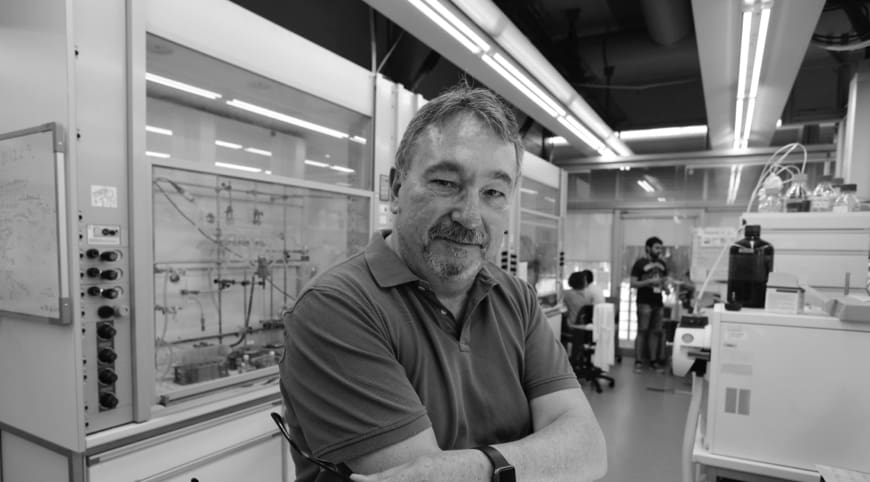Asymmetric Visible-Light Photoredox Cross-Dehydrogenative Coupling of Aldehydes with Xanthenes
We report a methodology for the catalytic asymmetric cross-coupling of two C(sp3)–H bonds employing visible light as an economical and environmentally benign source of energy. In this protocol, photoredox catalysis is used for the oxidation of a xanthene to the corresponding cation, which is then trapped by an enamine intermediate generated in situ from an aldehyde reactant and a secondary amine organocatalyst. This mild method does not require preinstallation of functional groups and allows the formation of a C–C bond with simultaneous installation of one or two new stereocenters in a highly enantio- and diastereoselective manner. Mechanistic studies by experimental and computational methods aid to clarify the origin of the observed enantioselectivity.

E. Larionov, M.M. Mastandrea, M.A. Pericàs
ACS Catal. 2017, 7, (10), 7008-7013
DOI:
10.1021/acscatal.7b02659

Let's create a brighter future
Join our team to work with renowned researchers, tackle groundbreaking
projects and contribute to meaningful scientific advancements



















